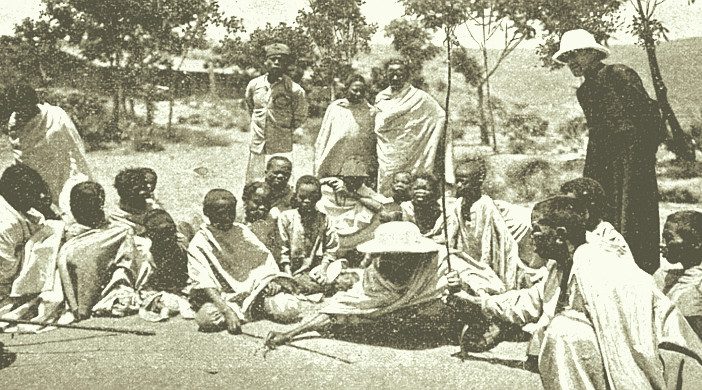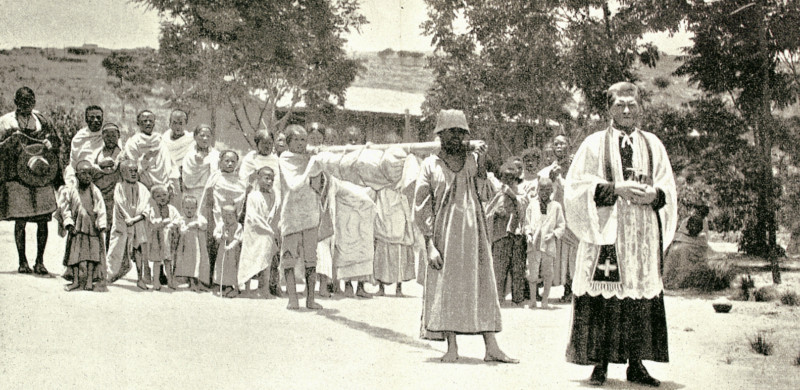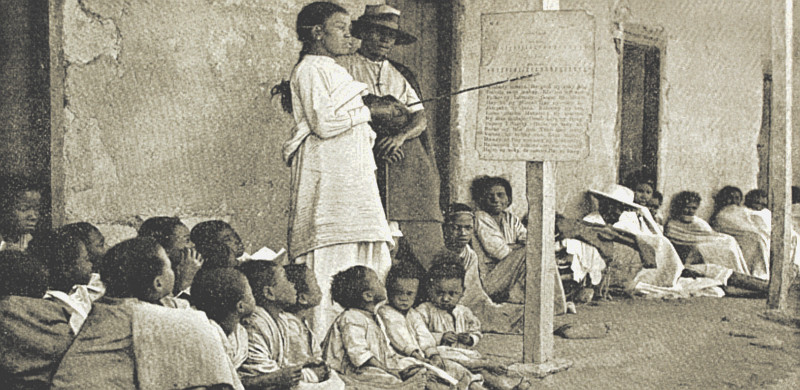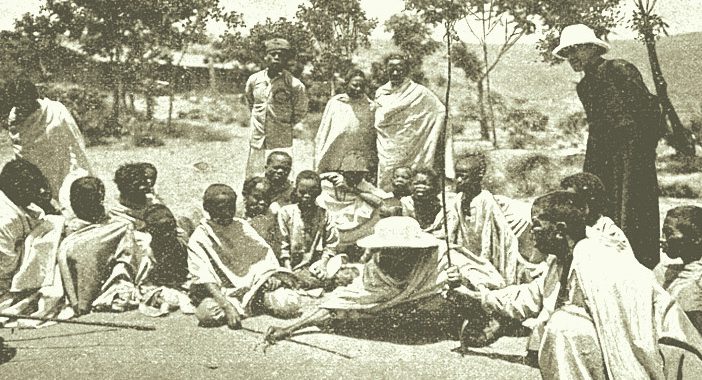
THE PRINCIPLE AND FOUNDATION
Among the most valued by St Ignatius religious virtues were discreet charity (caritas discreta) and obedience. Obedience, based on faith and trust in God that through the superiors and their orders tells His will to their subordinates, governs them, thus complementing the deficiencies of the superiors. Such obedience is apostolic in its origin, missionary for the spreading and protection of the faith, for the growth of God’s glory and the creation of greater common good of people in the Church, which invisible Head is Our Lord Jesus Christ and His visible substitute on the earth is the Pope. Such understanding of obedience is the principle and foundation (principium and fundamentum), the source, the key principle, the basis of the Society of Jesus. The goal of the Order is a personal salvation and perfection, as well as the salvation and perfection of the neighbors. Thereby, the greater glory of God and common good are possible to be achieved due to the obedience to God, to the Church and to the superiors. This is why obedience is a bond of unity between the Church and the order. Obedience, like an evangelical counsel, is a part of the obedience of Jesus Christ, who for our salvation, obeyed the saving will of God to the death on the cross. (Philippians 2,8)..

SUPERIOR’S WORD IS MY COMMAND
From his novitiate years Father Beyzym was educated in the order obedience and formed for the obedience. It rooted in him deeply for all his life. Thanks to the living faith, it was not difficult for him to be obedient. “If it is the superiors’ will and i.e. the will of God, I will submit and willingly stay here with the lepers to the end of my life”. His apostolic mission in Marana or on Sakhalin Father Beyzym subjected to the will of his superiors completely. “Superior’s word is my command. I can do nothing without him”. His route to Sakhalin would be defined to Father by his Superior. Father himself would gladly go through Krakow, but “whichever way Father Provincial shows, I will follow”.
In the end of his life Father Beyzym appeared to have three possibilities for his missionary work: the continuation of his work for the lepers in Marana, the work for the prisoners on Sakhalin (which was rather impossible because of the position of the Russian government) and a new proposition – work in Rhodesia for the mission of Father Hiller on the Lower Zambezi. Father Beyzym, being a jaded man of age, was ready for any of the propositions in the spirit of obedience and holy indifference.
Father Beyzym always wanted to honestly settle the matters with his superiors, i.e “with obedience and love” – salva oboediencia et caritate. However, it often demanded, especially on Madagascar, a lot of self-sacrifice and self-denial. In accordance with the Constitutions and Order Rules (see Constitutions, 89), Father Beyzym included everybody of any power into his circle of obedience. A brother, who worked in the infirmary and who Father also tried to obey was not an exception.

FOR THE SOLES AND BODIES SALVATION
Father Beyzym had nasty difficulties with his superiors during the time when the leprosarium had been constructed and with the issue of the patients’ sex separation. From the moment this idea was presented, Father continuously felt opposition in this question of the Apostolic Vicar Jean Batiste Cazet, other superiors and missionaries, as they considered it unrealistic. However, Father Beyzym was deeply convinced in the necessity of such separation for the good of souls and bodies of people entrusted to him. In his conviction he was supported by the opinion of the competent and reliable people, such as Doctor Charles Dècés SJ and Doctor Beigneux. Since he felt responsible before God and the Order for the whole leprosarium, for the spiritual and temporal good of the patients, Father prepared and submitted his reasons for the sex separation in the written form. He fought his corner, did not and could not yield, because he was convinced in his right cause.
Father Beyzym was very well aware what harm was done to the souls and bodies of the lepers in the government asylums, so called leper colonies. He suffered because of the lack of understanding between him and his superiors, but he did not want and could not, in good conscience, lend his hand to the evil, if he could, at least somehow, remedy the situation.
Father Beyzym felt moral responsibility to introduce the sex separation and did not think that he was disobedient. He felt that he faithfully and conscientiously fulfilled his mission of salvation of souls and bodies of the lepers entrusted to him by his Order. Father Superior Alouis Bardon wrote about the conflict between Father Beyzym and Bishop Cazet to Father General Louis Martin: “Apostolic Vicar’s complaints about Father Beyzym are strongly exaggerated. However, it is true that Father Beyzym incurred his displeasure. Apostolic Vicar got full satisfaction and Father Beyzym manifested the feelings of St Ignatius’ true son with regard to his superiors”.
Father explained the accusations of disobedience made against him to Father Marcin Czerminski. He stated that the orders were sometimes contradictory and he often felt as if stuck between a rock and a hard place – between the higher and lower rank authorities’ orders, which were frequently inconsistent. The fact is, though, that Father Visitor Victor Herrengt, sent by the Father General in 1909, visited the asylum and the leprosarium in construction twice and agreed with Father Beyzym’s activities for the most part. Father Herrengt was impressed and admired Father Beyzym’s love and devotion towards the lepers, fully recognized his work, construction plans and the sex separation concept.
If the harsh words were sometimes spoken by Father Beyzym with regard to Bishop Cazet or his superiors, he felt very sorry, apologized to God for “not treating his superiors in the spirit of faith and as prescribed by the Rules”. Father confessed and promised to improve.
Father Alouis Verley, the Superior of Betsileo mission and Marana belonged to its territory, accused Father Beyzym of being stubborn in relation to “his faulty and retrograde opinions”, of not recognizing Bishop Cazet and the superiors authority. Father, on his part, stated that he stuck faithfully and strictly to the recommendations of Father General and Father Visitor Herrengt. He considered the accusations of French Jesuits unjust and their orders unfulfillable. Father Beyzym always tried to be obedient to his superiors, considering himself “a bad son of St Ignatius”. He always waited for the orders and never wanted to act on his own.

JOY IS IN OBEYING NOT IN COMMANDING
To understand Father Beyzym’s spirit and practice of obedience, it is important to understand his attitude to his superiors and superiorship. In his opinion, superiorship is service, responsibility, obedience and “martyrdom” without bloodshed. Superiorship in his eyes is “the cross”. Our Lord Jesus knows who and which cross is to be given”, - wrote Father Beyzym to Mother Magdalena, having in mind the superiorship in orders. That is why he always thought that it is better to obey than command. To comfort his superiors, he wrote to them that the burden of their responsibilities prepared them glory and high place in heaven. In Father’s mind to resign from the position of a superior was a great relief. The return to brothers and sisters had to be a true joy.
It is not surprising that his understanding of superiorship awoke in Father Beyzym respect, sympathy, but most of all, submissive obedience with respect to his superiors and the will to help them in carrying their cross. Father Beyzym was of very high opinion about the Order superiorship, he sincerely wanted to be obedient and never went against the virtue, the vow of obedience, if it were not against his conscience. Father’s behavior in the situations of conflict was filled with desire to fulfill the will of God obediently and according to his responsibility of serving to entrusted to him “his black birds”. This responsibility, as the commitment of love to Jesus Christ suffering in sick and poor, Father Beyzym took extremely seriously in the face of God, the Order, the sick and donors.
Father Mieczyslaw Bednarz SJ
